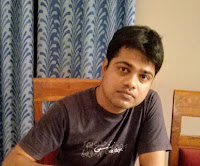Nehru
The first prime minister of India, Jawaharlal nehru, has been an outstanding politician. He was one of the greatest leaders of the national liberation movement. He was a fighter for democracy, peace and progress. He was a sworn enemy of social injustice and national oppression. He was born on November 14, 1889 into a wealthy Kashmiri Brahmin family in Allahabad. His father's name was Motilal Nehru who was an advocate and an important figure of the reformist wing of the Indian National Congress. Nehru received his education in England from 1905 to 1912. He studied in English School of Harrow and at Cambridge University. By profession he was an advocate. Nehru joined the Indian National Congress in 1912. When Mahatma Gandhi became part and parcel of the Indian National Congress in 1919, Nehru became his staunch supporter and the closest associate. It is he who spent a total of ten years of his life in prison for anti colonial agitation. On many occasions he was elected as Chairman of the Indian National Congress. In 1946 he became the deputy Prime Minister in the provisional government of India. Nehru permanently occupied the post of the Prime Minister of India. From August 15, 1947 to his death he remained the Prime Minister. Under Nehru's leadership, the Indian government took vital measures for the economic development of the nation. In this context the first three five year’s plans can be underlined. In the field of foreign policy Nehru believed in non-alignment. He participated in the elaboration of the five principles (Panchashil) of peaceful co existence. He was a good supporter of the Soviet Union. In 1955 he was awarded Bharat Ratna. At the age of 74, he died on May 27, 1954 in Delhi. He was really a ‘Lall’ of our nation.


Comments
Post a Comment